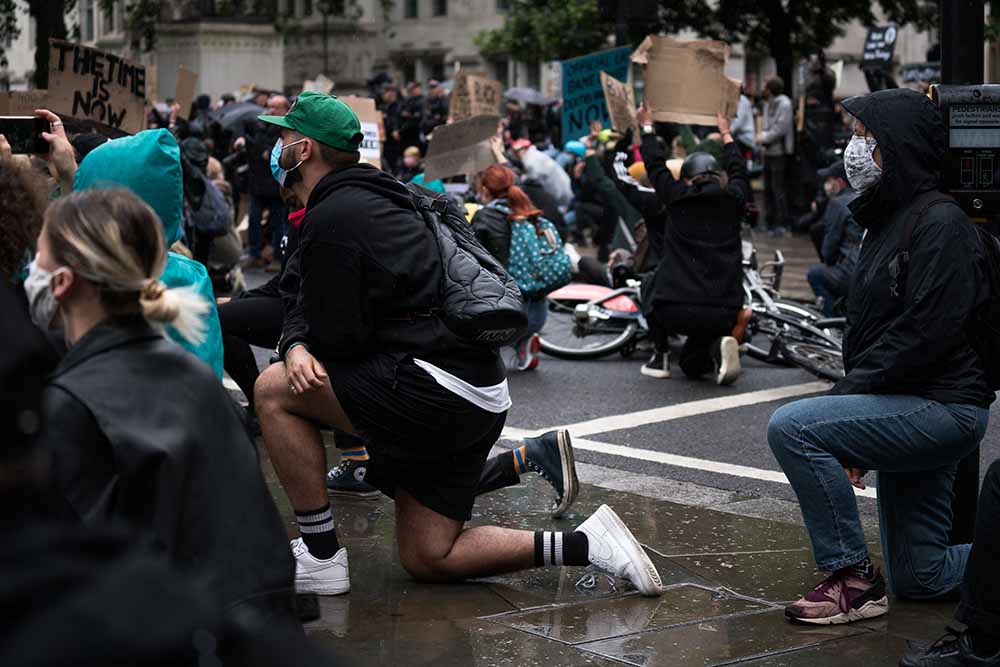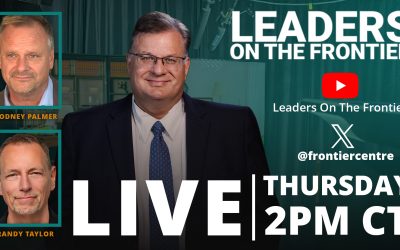Lack of understanding of the hidden police culture will, once again, only result in superficial changes, all the while the festering cinders remaining to reignite another bonfire.
Despite the promises made during the past decade, particularly with the adoption and expansion of community policing, much has been illusory.
The fact that after several decades of celebrating community policing, communities across the world have been over-policed, discriminated against, and quite frankly abused by systemic inequalities, deserves unbridled critique. Inequalities, which have been loudly and persistently decried by communities, inequalities that have been proven by the statistical realities of arrest and incarceration rates, and inequalities demonstrated by the video evidence of victims of policing bias.
While countries like Canada, Australia, Britain, France, and the United States have served as examples of societies that apply universally accepted norms of inclusivity and sustainable civil processes based on social justice, much of that is challenged today by the masses of protesters around the world who disagree.
While societies are struggling with the titanic influences of globalization, nationalism, and sectarian conflicts across the globe, all of which have direct impact on security services and how they respond in mitigating influences that work to disrupt processes of sustainable civil society, the institution entrusted with the maintenance of safe and secure communities have failed dismally.
It is easy today to focus on the incidents of police brutality as the result of the actions of a few bad officers. The tendency will be to return to the tried and true response of focusing on the trial and, hopefully, the conviction of the four officers who murdered George Floyd; on the trial, the prosecutor, and the jurors. The tendency will be, to once again, focus on procedural justice, on enlisting community leaders to dialogue on policing, and perhaps a few new procedures on the use of force.
Once again police executives will huddle and draw on best practices, on their inevitable group-think, police leadership forums, and a series of conferences to follow, to learn from the incidents and lessons presented by the present crisis.
It will all look good. It will all be very professional, inclusive of community leaders, victims’ families, prosecutors, mayors, lawyers, and academics. The problem is that the focus will almost certainly not be on those who bear the greatest burden of responsibility.
Allow me to be cynical – after a lifetime of policing, and now several years trying to change policing, I have some little insight into the culture of policing. That thin blue line is no longer visible, it isn’t a wall, it’s not a line in the sand; it is not a code; it has simply become much more systematic and insidious. Here’s why.
It is said that one cannot think outside the box until one knows they are in a box. Policing, despite its exterior facade of altruism and professionalism remains incredibly insular, self-promoting, and conservative. Even following the murder of George Floyd police leaders across the world have demonstrated this propensity for promotional policing.
Let me be completely critical of something that demonstrates this promotionalism. There has suddenly been a spree of police leaders taking the knee in recognition of the torturous murder of Mr. Floyd; and it’s a great sentiment, one that has been noticed by the protesters and media. Those who have taken the knee have found themselves, suddenly, to be less prone to criticism, prone to differentiation from the four officers who murdered Mr. Floyd, and prone to de-escalating protests under their command. Now, to criticize this would appear to be countermining a positive move, a gesture that is accepted by the protesters as a sign of sympathy and accepting of their grievance, and yet, to be skeptical, it was these same leaders whose policing policies have resulted in the failure of the judicious application of discretion, disproportionate arrests of marginalized communities, and a culture that resulted in abuse of authority. This may appear harsh. Yet it is these very officers, who are now using the knee as another opportunity for “promotional policing”, who must be held accountable for measuring arrests over assists, charges over cautions, and having failed to speak up until now despite the overwhelming evidence that there are systemic inequities in the application of the criminal justice system; a system in which they have held leadership roles.
These are the executives under whose watch inappropriate members have been hired, passed through their pre-hiring examination and post-training probationary periods. These are the executives under whose watch officers previously sanctioned for abuse of power or misconduct have remained in positions where they maintain the same levels of authority and seniority as the vast others who serve honourably. These are the executives who have failed to take on their police associations, failed to effect legislative changes to expeditiously expel officers who are not suited to the job, and these are the same public order leaders under whose watch entire communities have been burned, looted, and victimized; this due to the failure of their organizations’ policies and practices.
There has been a view amongst too many in policing that policing is a profession unlike any other. That the oath of office and oath of secrecy, which most departments require, make it impossible for civilians to understand their challenges and stresses. I disagree. Policing is like any other profession. It requires empathy; it requires commitment and passion. How is a front-line worker different from a social worker or parole officer who must rigorously adhere to the procedural requirements, but still have empathy, and exercise discretion? How is a detective different from an airline crash investigator who determines the cause of an accident from a jumbled mess of metal and carnage? How is a police officer different from a teacher who must educate and inform even under the most challenging and sometimes abusive conditions?
Let’s be clear here; change cannot come from some promotional, made for the media, cover-your-behind, superficial responses. Change cannot be of the types delivered after the dozens of previous incidents. Change has to be cultural, more than skin deep.
Police leaders, almost religiously, hold Sir Robert Peel as an icon of modern policing. Some police executives might even remember a few of his principles, but knowing those principles, and doing or appearing to do what is required, is far from delivering on the intent.
Enough of meaningless community-police liaison meetings where the police decide when the meeting is held, who gets to be at the meeting, determine the agenda, and hold the funding. Enough of pretty community policing presentations and token officers assigned to community policing duties. It is all just semantics when on the one hand community policing officers are assigned to play basketball with the neighbourhood youth in the afternoon, to be replaced by two-person patrol cars after dark, and armoured tactical teams are sent in when the undercover operation is concluded. Where is the consistency, the procedural integrity that builds trust, respect, and cooperation?
Where is the fairness when a police officer earns more than a teacher, a nurse, a firefighter, or a social worker? Where is the fairness when a police officer is rewarded with overtime for making arrests, going to court on a day off, or coveted assignment in a squad for being tough on crime with no measure of that officer’s conviction to arrest rates? Where is the fairness when the numbers of criminals arrested determine performance and not how safe people feel in their communities? Where is the fairness when Board members assigned to represent citizens don’t themselves understand policing?
Where is the fairness when a police chief fails to deliver, but earns as much a premier or prime minister, yet continues to skirt responsibility?
I’m afraid that the real shame is that while present protesters have focused on an incredibly important issue, their lack of understanding of the hidden police culture will, once again, only result in superficial changes, all the while the festering cinders remaining to reignite another bonfire.
Anil Anand is a Research Associate with the Frontier Centre for Public Policy. Anil served as a police officer for 29 years; during his career, some of his assignments included divisional officer, undercover narcotics officer, and intelligence officer. He has worked in Professional Standards, Business Intelligence, Corporate Communications, the Ipperwash Inquiry (judicial public inquiry), and Interpol.



